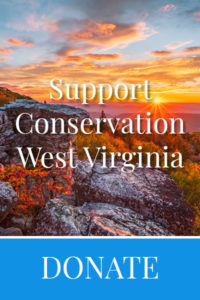Solar Power Back on the Agenda at the Legislature
A bill authorizing community solar programs in West Virginia was introduced in the House of Delegates on January 17, 2024. The bill, HB 4834, would extend the benefits of solar energy to electric consumers who have no roof space, live in shady areas or rent their homes. It would enable subscribers to get a credit against their electric bills for their portion of the electricity generated by the solar cooperative to which they subscribe.
The community solar concept has caught on in many states around the country. It has many benefits. It would give consumers a choice of the source of energy they consume in their homes, instead of being stuck with the fuel source their electric utility favors. It would reduce the cost of electricity. And it would reduce carbon emissions, especially here in West Virginia where over 90% of our electricity is generated by burning coal.
HB 4834 was introduced by Delegate Evan Hansen from Monongalia County and Delegate Kayla Young from Kanawha County. The Public Service Commission would establish regulations ensuring the efficiency and fairness of the program. Community solar generating facilities would be constructed within PSC guidelines. They would then offer subscriptions to consumers for a share of the electricity produced.
The electricity produced by the facility would go into the overall electric grid, but the subscriber would get a credit on her electric bill for her proportional share of that electricity. The credit would be on the dollar-per-kilowatt-hour basis already used by the utility to calculate the consumer’s monthly electric bill.
HB 4834 protects the electric utility by limiting each community solar facility to 5 megawatts of production and ensures that no utility’s territory would have more than 100 megawatts produced by community solar. In addition, PSC rules would guarantee the utility a reasonable set-off for interconnection to the grid and the costs of administering their part of the program.
Nevertheless, electric utilities are likely to oppose community solar, or to insist on reducing the credit available to community solar consumers as they have recently proposed for homeowners with solar panels who enjoy net metering. There will be a lot of activity in the Legislature on solar power this session. Stay tuned.
Update February 13, 2024
Two companion community solar bills have been introduced in February in the House and Senate. These are HB 5626 and SB 638, both of which are titled Community Solar Pilot Program. These two bills may have a greater change of passage than HB 483 because of introduction in both chambers.
These two bills place greater emphasis on the availability of participation in community solar programs for low-income consumers. They preserve the current bill credit for electricity generated by solar power. They also encourage siting community solar facilities where they can co-exist with agriculture and on lands undesirable land previously used for mining or manufacturing.

